- Hey Dullblog Online Housekeeping Note - May 6, 2022
- Beatles in the 1970s: Melting and Crying - April 13, 2022
- The Beatles, “Let It Be,” and “Get Back”: “Trying to Deceive”? - October 22, 2021
NANCY CARR * A recently self-published book by Jewelle St. James, John Lennon and the Bronte Connection, claims that John Lennon was the reincarnation of Branwell Bronte, the brother of the more famous Charlotte, Emily, and Anne. Also that the author is, perhaps, the reincarnation of Emily Bronte. And that in an incarnation previous to this 19th century one, Jewelle and John were lovers (as “John Baron” and “Katherine St. James” in 15th century England). The new book is an elaboration of her 2011 work, The Lennon-Bronte Connection.
“So what?,” you may well ask. There’s no shortage of wacky book-length manuscripts available for purchase in this era of Everyone His Or Her Own Publisher. The elements of wish-fulfillment in this narrative are readily apparent, even in bare outline. Why should we care?
As Devin said in his “John Lennon, Hollywood Scumbag?” post, I think we need to acknowledge and analyze some of the Beatles-related items that are being widely circulated (I saw this on the “Beatles News” site), even when those items are of questionable value. Like the Daily Beast piece that Devin discussed, I believe that the notice of St. James’ book on examiner.com points to larger, disturbing tendencies in the way we deal with history and celebrity.
In this case, I’m not concerned about St. James’ reincarnation claims. Since this kind of assertion is essentially unprovable, readers are free to believe or disbelieve based on their own knowledge and experience. I will observe only that it is striking, given the disparity in numbers between the upper and lower classes across history, that few people who explore past lives seem to discover that they were undistinguished farm workers or washerwomen.
But then there’s this, quoted from Shelley Germaux’s review of the book:
“A strong theme throughout the book is her heroic defense of Branwell, who has been so maligned since his death. She quotes from several biographical sources that support her feelings. The quotes also provide support for her feeling that Emily Bronte did not write Wuthering Heights on her own, but that it was Branwell behind the pen throughout much of the book.”
Now, once you start arguing for reassigning authorship of works by writers who are dead and can’t defend themselves, you’d better have some hard evidence. What I object to here, as in my post on Jude Sutherland Kessler’s Lennon books, is blurring the line between what can be historically established and what the author thinks or “feels” happened. At least St. James, unlike Kessler, appears to acknowledge her assertion is opinion and not fact.
But there’s plenty of evidence that Emily Bronte did indeed write Wuthering Heights. The idea that Branwell wrote or contributed to the writing of this novel has been around for a long time — since 20 years or so after the publication of the book in 1846. It’s also been repeatedly dismissed by literary scholars and historians who have examined the record. As Irene Cooper Willis put it in a 1947 journal article, “The claim that Branwell Bronte wrote or had a hand in writing Wuthering Heights rests on evidence that has only to be examined critically to be suspected.” I am reminded of the “Paul is Dead” myth, a sturdy weed surviving well into the 21st century despite a dearth of substantive evidence.
This book’s appearance is a small occasion, but it connects to essential questions about fact and history.
It is important to stop and recall that the ideals of objective journalism, and of history based on a thoroughgoing canvass of available sources, are of relatively recent date. They are fragile. Unless readers champion, perhaps even demand, such ideals, they are likely to perish. I believe we have a responsibility to avoid, as best we can, overreading or misreading the historical record or supporting such practices.

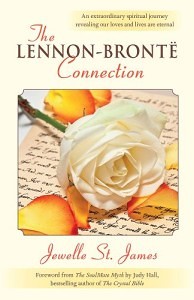


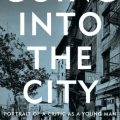
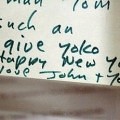


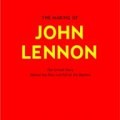




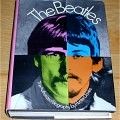
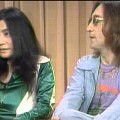
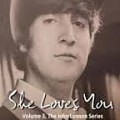
@Nancy, I’ll leave the same comment here I was going to leave on the Beatlefest post.
You wrote: “I think the question is how many people who attend BeatleFest want spirited intellectual inquiry into things Fab-related. I’m sure some do — and Mark Lewisohn’s prominence may help to coalesce that group — but I suspect a lot don’t.” (Rest is here.)
I think you’re right, Nancy. I don’t think most Beatles fans want to hold this interest up to the microscope in the way that we do here; but some clearly do, thank goodness. This issue for me is, as the size of the fandom shrinks (as it must, right?), will the proportion of “thinky” Beatles fans grow so small as to be unserviceable by Beatles, Inc? And will then the group only attract future fans who buy into the most candy-colored, uncritical, boring vision of the group and its story? The Beatles fascinate me precisely because there’s so much room for nuance, because their dynamic is so complicated and their history so rich… and their catalog so intellectually rich. To me, that’s what makes them better than all the other wonderful music/musicians of the period. They aren’t the 60s version of Michael Jackson or Oasis or Jay-Z, and that’s never clearer than when someone tries to compare Michael or Oasis or Jay-Z with the Beatles. The former phenomena are so much simpler and more limited.
I think we’re reaching a fork in the road with Beatle fandom, something that’s been accelerating towards us since John Lennon’s murder: is this going to accelerate into a kind of religion? Or is it going to intellectualize into something more solid but less fervent, like Bach or the heritage of Renaissance Florence?
Will it exist as a canon of work and a piece of objective cultural history, or will it slip solely into soft-focus philosophy, wish-fulfillment and fantasy? Because even though there’s dharma and Scripture and wisdom in the Beatles, it’s all very DIY. There’s no intellectual tradition built around it, so it’s a lot like what John said about LSD, “What you get from it depends on what you bring to it.”
The music will always thrill (see “skin orgasms” here), but it’s up for grabs as to whether future Beatle fandom will have any room for the brain as well. There is a worshipful quality to the Fest that I personally find uncomfortable — it’s the same mindset that allowed a young man to introduce his sons to me: “This one’s Harrison, and that one is Maxwell. You know, from the song.”
Yes. The one about the serial killer.
Please, please tell me they didn’t give that kid the middle name “Edison.”
I have pretty global doubts about how much thinking and weighing of evidence the majority of people are willing to do about anything. (Sorry to sound so sour.)
How much room will there be for the brain in Beatles fan venues, going forward? I think there will always be a minority of people who value in-depth, critical exploration. But if you drew a Venn diagram, how many of those people also want to go to a capital-f Fest? My guess — and it’s only a guess, since I’m one of the people not so inclined to be drawn to the Fest in the first place — is that the worshipful/celebratory vibe is a big part of the draw, particularly today, since the movies etc. are readily available online.
I wonder if we’ll end up with three groups: 1) I just enjoy the music 2) I enjoy the music + like thinking about the larger implications of the Beatles’ legacy and 3) I enjoy the music + treat the Beatles or Lennon as objects of quasi-religious veneration. Group 1 will stream the music, group 2 will write or speak analytically about the Beatles, and group 3 will be the major populators of fests and the producers of tendentious pieces about aspects of Beatles history.
Group 2 will survive in some form. I think. But I’m not betting it will ever be very big. I hope I’m wrong.
@Nancy, I’m more sanguine than you are for three reasons (besides my innate Up-With-People-ism):
1) Nobody, especially not the Beatles themselves, ever thought we’d still be talking about them 50 years later. That was incomprehensible. It was only stuff like Beatlefest that started getting everyone to think, “Hmm. Maybe we had something more than we thought.” (I honestly believe that Lennon especially started to see that “his band” was an historical thing, not just his personal plaything/psychodrama, and his unabashed support of Beatlefest is an example of this.) There’s something at work here that’s surprisingly, wonderfully durable.
2) The trend in all forms of pop culture is towards more analysis, not less. You see this most clearly in comic books, TV, and movies, but it’s really everywhere (fantasy football for example). If Beatles fandom follows the pattern of other fandoms, geekery as a proportion to the total should be on the steady increase. At the screening on Saturday, it was introduced by a fellow who teaches a course on “Beatles History” at the UCLA Extension. Dullblog-type takes really exist in proportion to a perception of “the Beatles as text,” and that’s not going away. Just since our switch to WordPress two years ago, we’ve had well over 200,000 visitors.
3) Because there is no more new Beatles, you either go deeper, or you quit. And frankly there’s not much popular music that is as compelling. While the total number of Beatlefans is much smaller than it was in 1967, I’d guess that many more of them have a “monkish” turn of mind, and go deeper.
But we’ll just have to see. Certainly I think it’s worth maintaining an online clubhouse for such stuff, and I don’t think it’s going to become less worthy anytime soon. I do wish we had more commenters — a lot of folks never made the switch to WordPress, and that puzzles me because the site’s better in so many ways.
And I didn’t stay in the elevator long enough to ask the kid’s middle name. I was a-feared.
I’ve been taking a break from rock music and enjoying the 1920s and ’30s.
I remember the old “Pennies From Heaven” Bob Hoskins tv show, and lately I’ve re-visited the soundtrack. Al Bowlly is my favorite (the old British jazz bands were spectacular), but I’ve been mixing in some early Bing as well. I’ve been enjoying the song “Please” without realizing that it’s the song I read about years ago being the inspiration for “Please Please Me”
https://www.youtube.com/watch?v=156BFMAajhA
Scholarship first and foremost requires that you actually *read* what you are criticizing. Instead, you have slavishly repeated two myths about reincarnation: 1) that it can never be proven, and therefore must remain a matter of opinion, and 2) that “everybody remembers somebody famous.” Both myths are without foundation. If you are “not concerned” about Ms. St. James’ claims, and have not given them a chance by studying them, then you have no right to summarily dismiss them, while in the same breath championing scholarship. Passing judgment in admitted ignorance is the worst excuse for scholarship.
Hey @Stephen, would you feel comfortable speaking a little more about feelings on reincarnation? What led you away from those two oft-held opinions?
Personally, I have no opinion. I study too much Tibetan Buddhism to reject it out of hand, and one hears stories about children that certainly give one pause. But I do grow benignly impatient with the “I was once Cleopatra” set. Because, as @Hologram Sam and I know, Mehitabel the Cat got there first.
How does one prove reincarnation?
R.I.P. Cilla Black
One of Brian Epstein’s early discoveries, and one of his favorites.